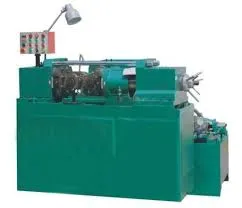
-
 Afrikaans
Afrikaans -
 Albanian
Albanian -
 Amharic
Amharic -
 Arabic
Arabic -
 Armenian
Armenian -
 Azerbaijani
Azerbaijani -
 Basque
Basque -
 Belarusian
Belarusian -
 Bengali
Bengali -
 Bosnian
Bosnian -
 Bulgarian
Bulgarian -
 Catalan
Catalan -
 Cebuano
Cebuano -
 Corsican
Corsican -
 Croatian
Croatian -
 Czech
Czech -
 Danish
Danish -
 Dutch
Dutch -
 English
English -
 Esperanto
Esperanto -
 Estonian
Estonian -
 Finnish
Finnish -
 French
French -
 Frisian
Frisian -
 Galician
Galician -
 Georgian
Georgian -
 German
German -
 Greek
Greek -
 Gujarati
Gujarati -
 Haitian Creole
Haitian Creole -
 hausa
hausa -
 hawaiian
hawaiian -
 Hebrew
Hebrew -
 Hindi
Hindi -
 Miao
Miao -
 Hungarian
Hungarian -
 Icelandic
Icelandic -
 igbo
igbo -
 Indonesian
Indonesian -
 irish
irish -
 Italian
Italian -
 Japanese
Japanese -
 Javanese
Javanese -
 Kannada
Kannada -
 kazakh
kazakh -
 Khmer
Khmer -
 Rwandese
Rwandese -
 Korean
Korean -
 Kurdish
Kurdish -
 Kyrgyz
Kyrgyz -
 Lao
Lao -
 Latin
Latin -
 Latvian
Latvian -
 Lithuanian
Lithuanian -
 Luxembourgish
Luxembourgish -
 Macedonian
Macedonian -
 Malgashi
Malgashi -
 Malay
Malay -
 Malayalam
Malayalam -
 Maltese
Maltese -
 Maori
Maori -
 Marathi
Marathi -
 Mongolian
Mongolian -
 Myanmar
Myanmar -
 Nepali
Nepali -
 Norwegian
Norwegian -
 Norwegian
Norwegian -
 Occitan
Occitan -
 Pashto
Pashto -
 Persian
Persian -
 Polish
Polish -
 Portuguese
Portuguese -
 Punjabi
Punjabi -
 Romanian
Romanian -
 Russian
Russian -
 Samoan
Samoan -
 Scottish Gaelic
Scottish Gaelic -
 Serbian
Serbian -
 Sesotho
Sesotho -
 Shona
Shona -
 Sindhi
Sindhi -
 Sinhala
Sinhala -
 Slovak
Slovak -
 Slovenian
Slovenian -
 Somali
Somali -
 Spanish
Spanish -
 Sundanese
Sundanese -
 Swahili
Swahili -
 Swedish
Swedish -
 Tagalog
Tagalog -
 Tajik
Tajik -
 Tamil
Tamil -
 Tatar
Tatar -
 Telugu
Telugu -
 Thai
Thai -
 Turkish
Turkish -
 Turkmen
Turkmen -
 Ukrainian
Ukrainian -
 Urdu
Urdu -
 Uighur
Uighur -
 Uzbek
Uzbek -
 Vietnamese
Vietnamese -
 Welsh
Welsh -
 Bantu
Bantu -
 Yiddish
Yiddish -
 Yoruba
Yoruba -
 Zulu
Zulu
CNC Thread Rolling Machine Manufacturer for Precision Machining Solutions
CNC Thread Rolling Machine Factory Revolutionizing Precision Manufacturing
In the realm of modern manufacturing, precision is the cornerstone upon which quality products are built. One of the key players in achieving this level of precision is the CNC (Computer Numerical Control) thread rolling machine. As industries continue to evolve, CNC thread rolling machines are becoming increasingly vital, allowing manufacturers to produce high-quality threaded components with unmatched accuracy. This article will explore the significance of CNC thread rolling machines, their manufacturing processes, and the advantages they bring to a factory setting.
Understanding CNC Thread Rolling Machines
CNC thread rolling machines utilize advanced technology to create threads on metal components through a cold-forming process. Unlike traditional machining methods, which remove material to create threads, thread rolling displaces the material, resulting in a stronger and more durable thread. These machines operate under computer control, meaning they can perform complex threading operations with minimal human intervention, thereby increasing efficiency and accuracy.
The process generally involves feeding a cylindrical workpiece into the machine, where it is then subjected to two rotating dies that shape the thread profile by compressing the material. This method not only enhances the strength of the threads but also improves surface finish and dimensional tolerances. The ability to produce threads with precise specifications makes CNC thread rolling machines essential in sectors like automotive, aerospace, and construction.
The Impact of Technology
The integration of CNC technology in thread rolling machines marks a significant advancement in manufacturing. Traditional thread rolling processes were limited by manual operation, which introduced variations and increased the likelihood of errors. However, with CNC systems, manufacturers can program exact specifications into the machine, ensuring consistency across production runs.
Furthermore, the use of computer control allows for rapid adjustments to machine settings. If a design change occurs or a new product line is introduced, operators can quickly reprogram the CNC machine to meet new requirements. This flexibility significantly reduces downtime and enables manufacturers to respond promptly to market demands.
Efficiency and Cost-Effectiveness
cnc thread rolling machine factory

One of the primary advantages of CNC thread rolling machines in a factory setting is their efficiency. These machines can operate at high speeds, producing large quantities of threaded components in a shorter timeframe compared to traditional methods. This high throughput not only enhances productivity but also lowers production costs, making it an attractive option for manufacturers looking to maximize their output.
Moreover, the cold-forming process used in thread rolling typically results in less waste material compared to subtractive machining techniques. This not only conserves valuable raw materials but also reduces the costs associated with waste disposal. The combination of increased efficiency and lower material waste ultimately contributes to a more sustainable manufacturing operation.
Precision and Quality Control
Quality assurance is crucial in manufacturing, and CNC thread rolling machines excel in this aspect. The precision offered by CNC technology ensures that every threaded component produced meets stringent quality standards. By minimizing human error and maintaining consistent processes, manufacturers can achieve tighter tolerances on threaded parts, which is essential in applications where safety and reliability are paramount.
Additionally, modern CNC thread rolling machines are often equipped with real-time monitoring systems that can detect deviations from specified parameters. This capability allows manufacturers to implement corrective measures immediately, reducing the risk of defective products reaching the market and enhancing overall product reliability.
Conclusion
As industries continue to advance, the role of CNC thread rolling machines becomes increasingly vital in precision manufacturing. Their ability to produce high-quality, durable threads efficiently and cost-effectively is revolutionizing how manufacturers operate. With a focus on precision, reduced waste, and improved quality control, CNC thread rolling machines are not just a tool, but a linchpin in the modern manufacturing process.
Investing in CNC thread rolling technology is essential for any factory aiming to stay competitive in today’s fast-paced market. As the demand for precision-engineered components grows, the importance of CNC thread rolling machines will undoubtedly continue to rise, shaping the future of manufacturing across various sectors.
